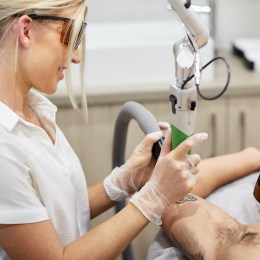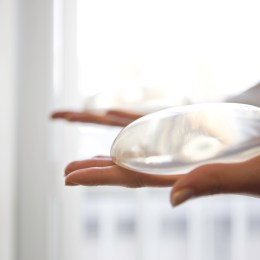The Australasian College of Dermatologists (ACD) has launched the A to Z of Skin, the country’s first online comprehensive directory of skin conditions, created and peer-reviewed by more than 100 Australian dermatologists.
The free online resource, which can also be viewed on mobile devices, aims to assist anyone who is searching for reliable information regarding skin conditions and their symptoms.
It provides a trusted source of accurate information and images regarding more than 200 conditions, from common skin complaint such as acne, psoriasis and skin cancer, to less frequent conditions, including vitiligo and lichen planus.
“The best option for anyone suffering from a skin complaint is to visit a GP or a dermatologist,” says president of the ACD, Associate Professor Chris Baker.
“However we know there is an increasing number of patients who search their symptoms and conditions online. As a result, the A to Z of Skin has been developed by the ACD as part of our ongoing commitment to patient care.
“We want to offer essential and accurate dermatology information to everyone, whether accessed from their desktops, laptops or mobile devices.
“The A to Z of Skin has been compiled by specialist doctors and professors who are dermatologists, with each contributing doctor credited in every entry.
“The information is clear and easy to understand, featuring images of how skin diseases can present, and details that patients should be aware of, such as causes, dermatological terms, possible treatment types and related illnesses.
“Both common and medical names have been incorporated. The directory will be updated by dermatologists on a regular basis to ensure the information is always relevant.”
The development of the directory follows research published late last year in the Skin Health Australia Report Card (SHARC Report), which revealed that 42 percent of Australians suffer from itchy, sore, painful or stinging skin. However, 62 percent of people do not seek professional advice or treatment. For instance:
- 22% seek no treatment
- 15% work it out themselves
- 14% search online
- 11% seek advice from non-medical sources.
- The study also found that 38% of Australians are embarrassed or self-conscious because of their skin, and nearly one fifth of the population have a skin condition that influences the clothes they choose to wear.
“Sometimes people suffer unnecessarily from skin conditions – they don’t know where to go for information, they think it will be expensive, or they don’t recognise the medical nature of their problem,” says Associate Professor Baker.
“It’s also very common for sufferers to feel embarrassed. The A to Z of Skin is designed to assist anyone who is seeking an understanding of a skin condition and how it might be treated.
“We have deliberately avoided using technical language to ensure it is user-friendly.
“The resource can be directly accessed by the general public, but can also be used by medical practitioners as an extra resource to help inform their patients.
“We hope the introduction of the A to Z of Skin ensures that anyone can access important information quickly and easily.
“Skin conditions, especially those that are highly visible or cause discomfort, can have a profound impact on a patient’s self-esteem, relationships and their ability to enjoy life.
“The impact on quality of life can be vastly underestimated and we aim to support patients wherever possible.”
The A to Z of Skin also aims to raise awareness of related health issues which are linked to skin conditions.
“\Patients who suffer from conditions such as psoriasis, vitiligo and eczema are often unaware that they can also carry an increased risk of developing additional medical conditions.
“Depending on the original complaint, these range from depression, cardio vascular disease, arthritis, asthma and deafness,”says assoc prof Baker.
“In practice, dermatologists have observed that many patients are uninformed of other medical issues which may be connected to common dermatological conditions.
“For example, patients with severe psoriasis have a higher risk of arthritis, type 2 diabetes and developing heart disease.
“It is our aim to educate people about the management of skin conditions and how this is relevant to maintaining overall health.
“Although the A to Z of Skin should not be used in isolation as a substitute to visiting a GP or dermatologist, it does provide carefully reviewed information that may help to provide valuable information and educate a wide variety of people.”
The Australasian College of Dermatologists is the peak medical college accredited by the Australian Medical Council for the training and professional development of medical practitioners in the specialty of dermatology.




